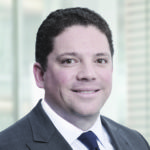By Darren Coleman
Special to the Financial Independence Hub
There is an Oscar Wilde quote that goes like this: “A cynic knows the price of everything and the value of nothing.” I think of it every time I see one of those Questrade TV commercials where the client meets with their wealth-management advisor so they can tell the person they are fired. Why? The fees are too high.
The commercials drive home the point that advice costs more than doing things yourself, which is no surprise. I’m also flattered because in one of the ads, the character has my name – Darren – and it makes me think I might be in that seat. But that’s as far as the similarity goes because in all the years I have been in this business no client has ever told me they are leaving because of my fees. Not one.
This is where I think those TV ads miss the point. The issue at hand should not be about price. It should be about Value.
All those ads focus on the price of advice and the implication is clear: that advisors are gouging their clients. The advisor gets to retire early because of fat fees while the client, according to the ads, loses up to 30% of their retirement savings to fees. While the math in these ads may be questionable, the ads also ignore any benefit that the Advisor’s advice may bring.
The ads showcase clients not experiencing true value
Let’s explore what these ads are really about. What they showcase is that the client is not experiencing true value in the relationship. So, the client decides to go it alone and hire Questrade’s robot to do things for them. Questrade, and ‘robo-advisors’ as they are called in the industry, offer a discounted trading commission to do-it-yourself traders, along with pre-built portfolios for more passive investors. As there is no personalized advice on any financial matters for the client, the fees are much lower. Which is as it should be.
I, for one, would never use such a service. I don’t even like those robot vacuum cleaners; the one my wife bought always gets caught under the couch because it can’t find its own way out, which is annoying. I also dislike those robot attendants which more and more companies are using for navigating their telephone systems. And I use these analogies for good reason.
As far as handling your investments and financial matters, does going it alone or going with a pre-built model portfolio actually work? The evidence shows this is not the best solution for most people.
Behavioural mistakes rob people of bulk of their returns
Every year Dalbar, North America’s leading independent expert for evaluating, auditing and rating business practices, produces its annual Quantitative Analysis of Investor Behaviourstudy, which shows that most investors underperform their own investment portfolios. Year after year, investors buy and sell at the wrong times. They do this because they allow their emotions to get in the way. Consider it part of the human condition. Believe me, professional advisors know all about these tendencies: that behavioural mistakes rob people of the bulk of their returns.
For example, in March 2019, Dalbar calculated that the average investor lost more than twice as much as the market in the previous year! The average investor saw their portfolio drop by more than 9% while the market was down only 4%. And this was no fluke. Over a 20-year time period, these mistakes have continued and investors, on average, underperformed the broad market by about 4% annually.
In 2014 Fidelity Investments, one of the largest investment firms in the world, did a study to examine which of its clients had the best rates of return. Fidelity discovered there was indeed one client cohort with the highest success: those who were dead! How about the second-best group? Those who had forgotten that they even had a Fidelity account. Those with the worst performance? Day traders.
All this might be a revelation to people who are concerned about their money, but it’s no revelation to financial advisors. There is an old stockbroker joke that goes like this: ‘Your portfolio is like a bar of soap; the more you touch it, the smaller it gets.’ Both Dalbar and Fidelity have shown this to be true.
In fact, a good wealth-management Advisor does much more than build a great portfolio of investments for their clients. Software can do that job now. There is software that selects high-quality, diversified securities and rebalances them over time to ensure that your account stays on course. This means that, with technology and innovation, what was once hard to do is now quite easy.
The real value of an Advisor is helping make you a better investor. And while Artificial Intelligence might be doing a lot of fascinating things for us these days, there is still no substitute for experience and wisdom. And that means humans.
The damage to portfolios caused by poor behaviour isn’t limited to investors. Financial illiteracy is rampant in our society. In May 2019, CNBC reported that 27% of Americans would have to sell something to meet an unexpected financial need of only $400. This means that more than one-quarter of all Americans do not have enough cash on hand, or any other means, of covering a $400 surprise. CNBC also reported that one-quarter of Americans have ZERO retirement savings!
Almost half of us are $200 away from a financial emergency
This isn’t fake news. It is fact. And here in Canada things might be even worse. In January 2019, the accounting and consulting firm, MNP Ltd., reported that 46% of Canadians were $200 away from a financial emergency. The firm also found that 31% of Canadians – almost one-third – don’t make enough to cover their bills and debt payments.
So, most Canadians and Americans are in terrible financial shape. And while we can blame everything from taxation to ‘income inequality’ to government policies, perhaps the most glaring reason for this state of affairs is that people are not taught how to handle money. The basics of personal financial planning are barely touched on in elementary and high school.
How many of us had to dissect a fetal pig or calculate the trajectory of a projectile since that last science class? How many of us felt compelled to write a sonnet or maybe haiku (Japanese poetry) when the muse found us? Not that these aren’t valid pursuits. But how do they compare to navigating our banking plans, dealing with paying for a mortgage, saving for our kids’ education, or funding our retirement? Not to mention buying the right amount, and the right kinds, of insurance should things suddenly go wrong.
These are all things that a properly qualified, highly-credentialed, and experienced Advisor can and should do for clients. Does it cost more than doing it yourself? That depends on how you look at it. There is always a price to hiring an expert. But, as we have seen in the examples above, there is often a much higher price for NOT hiring one.
 Darren Coleman is an advisor with Raymond James in Toronto.His professional accreditations include Canadian Investment Manager, Financial Management Advisor, and Fellow of the Canadian Securities Institute with a Level II Life Insurance License. Darren was one of the first Canadian professionals to attain the designations of Professional Financial Planner, Certified Financial Planner, and Certified Hedge Fund Specialist.
Darren Coleman is an advisor with Raymond James in Toronto.His professional accreditations include Canadian Investment Manager, Financial Management Advisor, and Fellow of the Canadian Securities Institute with a Level II Life Insurance License. Darren was one of the first Canadian professionals to attain the designations of Professional Financial Planner, Certified Financial Planner, and Certified Hedge Fund Specialist.




Funny I just helped a friend move $340k from RJ to Questrade, he was paying high fees and was certainly not getting any ;value’ to say the least. He’s now sitting comfortably in VBAL One Ticket from Vanguard. He knows what goes where moving forward.
Hey Dale, your friend is lucky to have you help him sort things out and make a move, but it might be a bit early to firmly state he is in a better place. Time will tell if his move to DIY pays off with the much lower fee. No question the fee delta is significant, but he is now on his own to determine what to do in light of market moves. Will he succumb to his emotions? Who will be his steady hand?
I am all for choice and the downward pressure on cost Robo etc bring may have spill over benefits to other investors but having been in this job for 34 years in the UK and Canada, seen a lot of change my observation is we have to be careful of unintended consequences. In 1991 there were 16,000 advisors at Prudential in the UK now 400. Guess who does not get help? Not the high net worth, the regular families have been abandoned. I can also recall in 2008 daytraders who tell me stories about their log in not working and calling up their discount broker to get a recorded message, waiting 2 hours to be told they could sell at the price now but there would be no compensation. What happens if 20,000 freaking out clients all try and call the ROBO call centre at once? How are they going to feel? There is no advice, explanation or hand holding. Go try it with $5k but would I put my lifes savings in??? There are small boutique firms running funds under 0.95% you can speak to a real person but they dont advertise as they are already too busy, some have wait lists. http://www.yournwm.ca